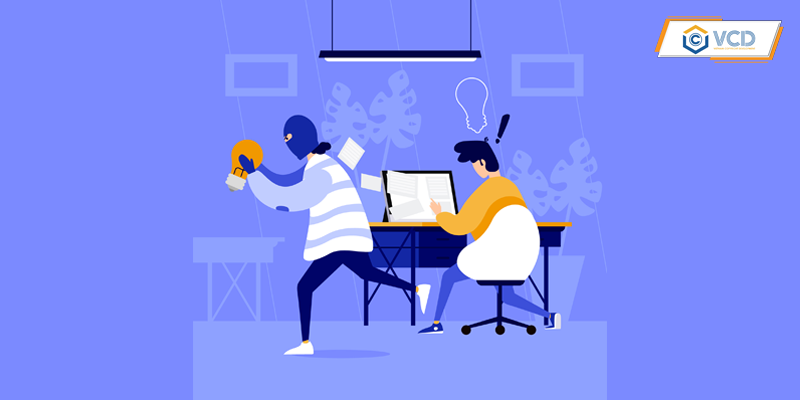What is musical plagiarism? How is musical plagiarism punished?
In the modern music industry, the issue of plagiarism is becoming one of the most controversial topics. Plagiarism is not simply copying the melody or lyrics, but also related to intellectual property rights and fairness in artistic creation. This behavior not only affects artists and producers but also affects the entire music industry. So what is plagiarism? How will plagiarism be punished? The following article from VCD will help you.
1. What is musical plagiarism?
In Sino-Vietnamese, “nhac” is understood as music, an art form that uses sound to convey meaning. On the contrary, “Dao” refers to the act of stealing. Therefore, “dao nhac” is the act of taking someone else’s music and turning it into one’s own work.
Pursuant to Clause 4, Article 1 of the 2022 Amended Law on Intellectual Property, it is stipulated that:
The author is the person who directly creates the work. In the case where two or more people directly create the work with the intention that their contributions are combined into a complete whole, those people are co-authors.
Accordingly, copyright to a work includes personal rights and property rights as specifically stipulated in Clause 5, Article 1 of the 2022 Amended Law on Intellectual Property
The provisions of the law on copyright do not provide a specific concept of plagiarism or the basis for determining whether a work is plagiarized from another work or not. However, it can be understood that “plagiarism” is the act of copying part of the content of a previously existing work. Therefore, there are two basic conditions to determine the act of “Plagiarism” including:
• Use, copy (imitate): This act involves using part or all of another author’s work. In the field of music, using any melody or similar pattern from another work can be considered “Plagiarism”.
• Create the impression of an original work: If you copy or imitate a part of a work without making others believe that you composed the original work, it is not considered “Plagiarism”. This requires you to clearly show that you have used someone else’s work, through citation. After citation, you also need to have the consent of the author of the original work.

2. Penalties for music plagiarism
Handling of administrative violations: According to the provisions of Article 18 of Decree 131/2013/ND-CP on administrative sanctions for violations related to copyright and related rights, copying a work without permission from the copyright owner will be punished as follows:
“1. Violators will face a fine of VND 15,000,000 to VND 35,000,000 for copying a work without permission from the copyright owner.
In addition to applying the above fine, to remedy the consequences, violators will be forced to remove copies of the infringing work in electronic forms, on the network and digital environment, or forced to destroy the infringing property.”
In the case of considering criminal liability: According to the provisions of Article 225 of the 2015 Penal Code regarding the crime of infringement of copyright and related rights, copying a work, audio recording, or video recording for the purpose of illegal profit will be subject to the following penalties:
“Depending on each specific situation, the act of copying a work, audio recording, or video recording for illegal profit may be subject to a fine of several million VND to 3,000,000 VND or to a non-custodial reform sentence of several months to 03 years in prison.”
3. Why is it necessary to handle plagiarism?
Plagiarism violates the rights of creators, stealing their efforts and talents. Copyright not only protects works but also encourages artists to create new and unique works, because they know that their work is protected and can bring profits.
Copyright protection also maintains musical diversity, prevents easy copying, thereby promoting creativity. At the same time, this right protects artists’ income, helping them avoid financial loss due to plagiarism.
Tackling plagiarism sends a clear message that stealing is not acceptable, promoting professionalism in the industry. This also protects the reputation and origin of the work, avoiding misunderstandings about who is the creator.
Consquencely, compliance with copyright regulations not only improves the quality of works but also ensures fairness in the music industry, and demonstrates Vietnam’s commitment to protecting copyright according to international standards.
Above is the article “ What is musical plagiarism? How is musical plagiarism punished? ” that VCD sends to you. We hope this article is useful to you.
